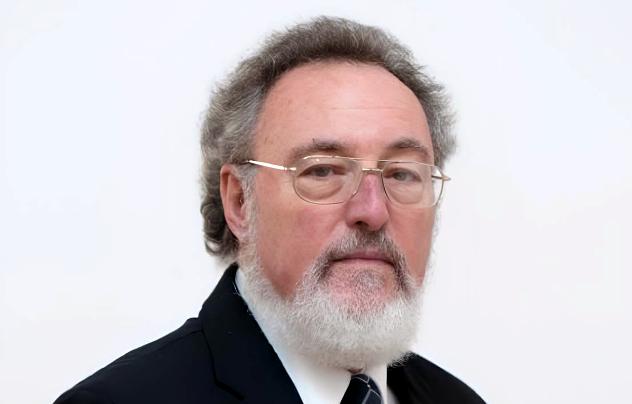
Michael Apple is one of the world’s leading figures in so-called critical pedagogy.
Photo: University of Wisconsin-Madison
Considered one of the most renowned scholars of critical pedagogy in the world, Professor Michael Apple, Emeritus of the University of Wisconsin-Madison, will be at UFMG (Federal University of Minas Gerais) in November and December for an intense schedule of events and meetings with researchers in basic education and teacher training. He recently assumed the position of head of the Fundep Magda Soares Chair in Basic Education at IEAT/UFMG.
During his stay at the university, Michael Apple will participate in four activities open to students, researchers, faculty, basic education teachers, and others interested in the topic.
Roundtable Discussion “The Challenges of Teacher Training and the Struggle for Democratic, Inclusive, and Humanizing Schools”
On November 26th, he will participate in the roundtable discussion “The Challenges of Teacher Training and the Struggle for Democratic, Inclusive, and Humanizing Schools,” in a historic meeting with Professor Miguel Arroyo, emeritus professor at UFMG. The event will be held in auditorium B101/B102 of the Center for Didactic Activities 3 (CAD 3), at 2:30 PM, and is promoted in partnership with the Union of Professors of Federal Universities of Belo Horizonte, Montes Claros, and Ouro Branco (APUBHUFMG+).
Major Conference “Can Education Change Society? Key Arguments” (part 1)
Following this, on December 3rd, Michael Apple will deliver the major conference “Can Education Change Society? Key Arguments,” at 2 PM, in the auditorium of the UFMG Rectorate. Certificates of participation will be issued upon registration through the Even3 platform. The activity will be conducted in English, with simultaneous translation into Portuguese.
Michael Apple explains that it is necessary to reflect – critically – on a fundamental question in the work of critically democratic educators: can education change society? According to him, although frequently used and, most often, in a merely rhetorical way, this question may not be the most appropriate one to ask. At the conference, Michael Apple will seek to reflect more carefully and deeply on the role of education in society and how it can play a crucial role in combating social inequalities. According to Apple, it is necessary to recognize that dominant groups have already answered this question. “These groups recognize that cultural and educational struggles are fundamental to social transformation,” he emphasizes.
After presenting examples of how these groups operate nationally and internationally, Apple will explain how everyday educational policies and practices relate to broader social structures and identities. Furthermore, he will address the implications of this relationship for the actions and commitments of ‘critical academics and activists’ working in education and teacher training.
Symposium “The Conditions of Teaching Work”
On December 5th, at 9:00 AM, Michael Apple will give the opening lecture of the Symposium “The Conditions of Teaching Work” in the Neidson Rodrigues Auditorium of the Faculty of Education (FaE) at UFMG. The event, which aims to discuss the working conditions of teachers in the United States, Brazil, and Minas Gerais, is a joint initiative of the Fundep Magda Soares Chair, the National Institute of Educational Policy and Teaching Work (INCT-GESTRADO), and the Research Group on the Teaching Profession (PRODOC) of FaE/UFMG.
In the afternoon, starting at 2:00 PM, research developed by INCT-GESTRADO and PRODOC will be presented and discussed, with Michael Apple and Professor Álvaro Hipólito, from the Federal University of Pelotas (UFPel), acting as discussants. Those interested should register through the Even3 platform to receive a certificate. Simultaneous translation will be provided.
Major Conference “Can Education Change Society? Stories from the Front Lines” (Part 2)
Concluding his program at UFMG, Michael Apple will present the major conference “Can Education Change Society? Stories from the Front Lines,” at 7 PM on December 9th, in the Noble Auditorium of the Didactic Activities Center 1 (CAD1) at UFMG. Certificates of participation will be issued upon registration through the Even3 platform. The conference will be in English, with simultaneous translation into Portuguese.
In the conference, Michael Apple will revisit the challenges identified in the first conference, to be presented on December 3rd. He intends to explain how everyday educational policies and practices are affected by unequal and oppressive realities present in contemporary societies, identifying spaces and opportunities for counter-hegemonic actions.
“I intend to talk about how it is possible to act as “critical agents” of democratic educational policies and practices and provide examples of actions that are being implemented with the aim of interrupting oppressive realities not only in education, but in broader spheres of social life,” he emphasizes.
Michael Apple will present three experiences of critically democratic educational reforms, aimed at confronting inequalities of class, caste, gender, and race. In his analysis, he will discuss the different levels of success of these initiatives and the lessons that can be learned from them, highlighting that even the most progressive reforms can represent both advances and limitations simultaneously.
About the professor
Michael Apple is John Bascom Professor Emeritus at the University of Wisconsin-Madison in the United States and Professor of Educational Policy Studies at the Institute of Education, University of London, England. He has worked with governments, researchers, trade unions, political movements, and dissident groups in Latin America and many other parts of the world to build more critically democratic research, policies, and practices in education. His recent books include Educating the “Right” Way: Markets, Standards, God, and Inequality (2006), The Subaltern Speak: Curriculum, Power, and Educational Struggles (2006), The Routledge International Handbook of Critical Education (2009), and Global Crises, Social Justice, and Education (2010).